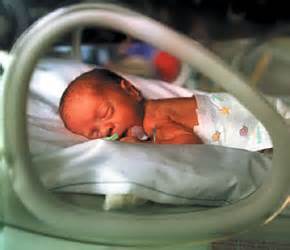TRI Recruiting Babies for Study of Executive Function
September 2, 2015

"It is so exciting to have cutting-edge research happening at TRI," says
Dr. Ella Taylor, Director of TRI. "Since it was founded, more than 50
years ago, TRI has conducted research studies that have dramatically
changed the face of education in America." For example, Dr. Edward
Palmer's research on what holds the attention of pre-school children to
television, that took place at TRI back in the 1960s and 70s, became the
foundation for the Children's Television Workshop that created Sesame
Street. “This new study on Executive Function in babies born Low Birth Weight has the potential to transform the field
as Dr. Palmer's research did in education,” Dr. Taylor stated.
 "Executive Function is the collection of mental processes in the brain
that allows for self-regulation, working memory, attention,
organization, and planning," explains TRI's Patricia Blasco, Ph.D.,
Principal Investigator on this study. “To date, there is no single
comprehensive measure of executive functioning (EF) for children ages 6
months to three years,” Blasco continues. “We know that
children born LBW are vulnerable to EF deficits because studies of EF in
this population have been retrospective. That means the child is
already school-age and experiencing learning difficulties. If EF
strengths and deficits are identified earlier in life, interventions can
be put in place to bolster skills and buffer deficits, leading to
school readiness and success in day-to-day activities.”
"Executive Function is the collection of mental processes in the brain
that allows for self-regulation, working memory, attention,
organization, and planning," explains TRI's Patricia Blasco, Ph.D.,
Principal Investigator on this study. “To date, there is no single
comprehensive measure of executive functioning (EF) for children ages 6
months to three years,” Blasco continues. “We know that
children born LBW are vulnerable to EF deficits because studies of EF in
this population have been retrospective. That means the child is
already school-age and experiencing learning difficulties. If EF
strengths and deficits are identified earlier in life, interventions can
be put in place to bolster skills and buffer deficits, leading to
school readiness and success in day-to-day activities.”
Funded by the National Institute on Disability and Rehabilitation
Research (NIDRR), the three-year study will follow infants and toddlers
born LBW who do not have major medical conditions, and babies born full
term without known delays. Children born LBW or pre-term will be
recruited from OHSU Neonatal Intensive-Care Unit (NICU) and follow-up
clinic, and from Salem Hospital. The full term children will be
recruited in the central valley area of Oregon.
The study examines whether traditional assessment methods that have
components of EF in their structure can reveal early indicators of
executive functioning. According to Dr. Sybille Guy, who leads the
research team at TRI, "The primary goal in Years 1 and 2 is to assess a
sample of 100 children born LBW and preterm and 50 children who were
full term. We will be administering a battery of standardized measures
of infant and toddler development involving both caregiver report and
individual assessment. In Year 3, the children will be assessed on
these measures and a measure of executive function."
The hoped-for outcome of the study is a modified version of these standardized assessments that can identify EF strengths and deficits in babies born LBW early enough so that supports can be put in place to maximize development and enhance kindergarten readiness.

Click here for more information about the article.

“This is a dream come true for all of us,” Dr. Blasco continues. “I have been interested for many years in the development of children who are born early and the effects on brain development in terms of executive function. These findings will provide new scientific knowledge and a better understanding of EF skills and deficits in young children who are born LBW and preterm.”
Recruitment for the study began in January, 2015. Click here to learn how you can get involved
OHSU IRB # 11290 - P.I.: Patricia M. Blasco, PhD
Project EF: Executive Function in Infants and Toddlers Born Low Birth Weight (LBW) and Preterm is funded for three years by the National Institute on Disability and Rehabilitation Research (NIDRR).
Recent News Items
Closing the Achievement Gap Through STEM Education Nov 18, 2016
TRI Staff Members Present at NAEYC Conference in Los Angeles Nov 10, 2016
Three More Years for Campus Against Sexual Assault Program Nov 9, 2016
TRI's Serra Acar Appointed as DEC Recommended Practices Ambassador for Oregon Oct 13, 2016
